Embibe Experts Solutions for Chapter: Laws of Motion, Exercise 1: AIPMT - 25th July 2015
Embibe Experts Physics Solutions for Exercise - Embibe Experts Solutions for Chapter: Laws of Motion, Exercise 1: AIPMT - 25th July 2015
Attempt the free practice questions on Chapter 3: Laws of Motion, Exercise 1: AIPMT - 25th July 2015 with hints and solutions to strengthen your understanding. EMBIBE CHAPTER WISE PREVIOUS YEAR PAPERS FOR PHYSICS solutions are prepared by Experienced Embibe Experts.
Questions from Embibe Experts Solutions for Chapter: Laws of Motion, Exercise 1: AIPMT - 25th July 2015 with Hints & Solutions
A ball of mass is dropped from a height strikes the ground and rebounds to the same height. The magnitude of impulse imparted to the ball is nearly :
A point mass is moved in a vertical circle of the radius with the help of a string. The velocity of the mass is at the lowest point. The tension in the string at the lowest point is:
Calculate the acceleration of the block and trolly system shown in the figure. The coefficient of kinetic friction between the trolly and the surface is ( mass of the string is negligible and no other friction exists).
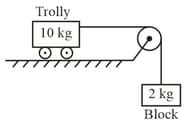
Two bodies of mass and are tied to the ends of a massless string. The string passes over a pulley which is frictionless (see figure). The acceleration of the system in terms of acceleration due to gravity is:
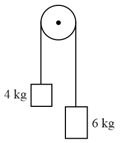
A particle moving with velocity is acted by three forces shown by the vector triangle . The velocity of the particle will
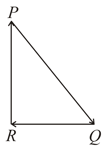
A system consists of three masses and connected by a string passing over a pulley The mass hangs freely and and are on a rough horizontal table (the coefficient of friction The pulley is frictionless and of negligible mass. The downward acceleration of mass is: (Assume
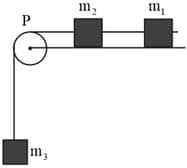
The force acting on a particle of mass is indicated by the force-time graph shown below. The change in momentum of the particle over the time interval from zero to is:
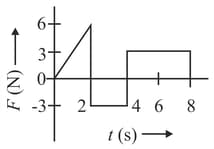
A balloon with mass is descending down with an acceleration (where How much mass should be removed from it so that it starts moving up with an acceleration ?
